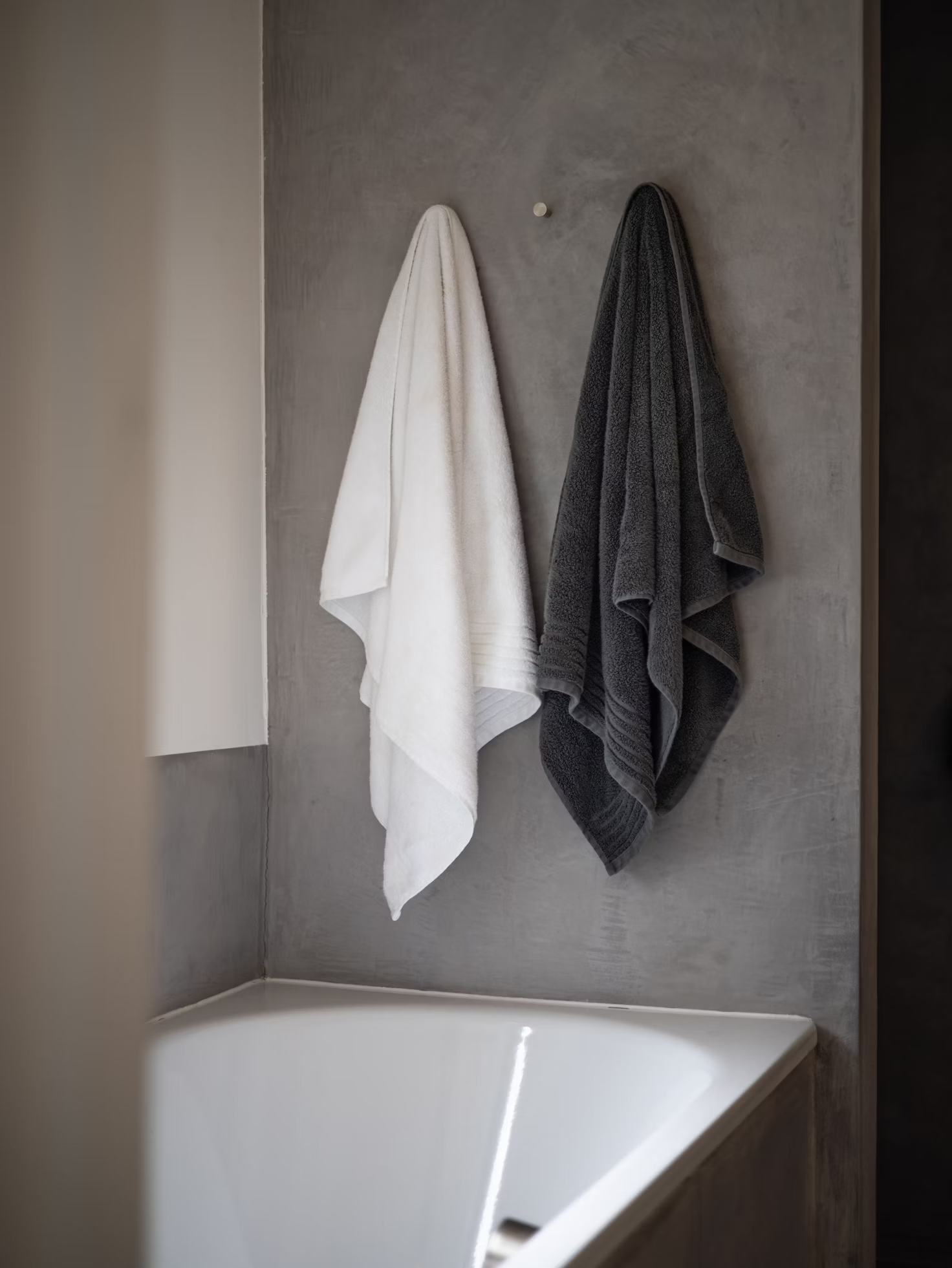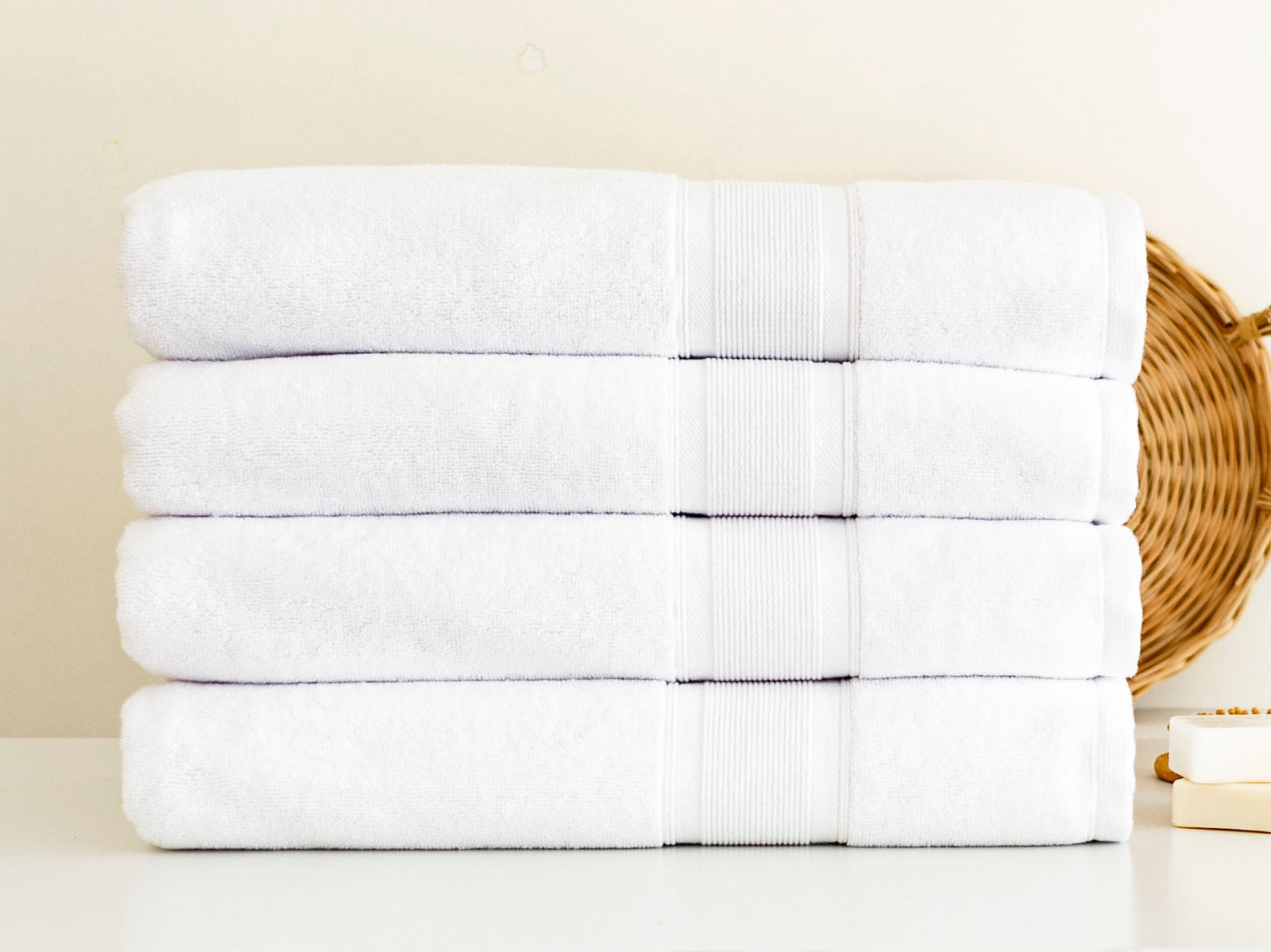
How Often Should You Replace Your Bath Towels? The Hygiene Guide
Bath towels are an essential part of our daily hygiene routine, yet many of us don't think about how often they need replacing. While they may seem clean after a wash, towels can harbor bacteria, mold, and odors over time. In this guide, we'll break down the optimal lifespan of bath towels, signs you need a new set, and best practices for keeping your cotton bath towels fresh and hygienic.
How Long Do Bath Towels Last?
The general rule of thumb is to replace bath towels every two to three years. However, several factors can affect their lifespan, including material quality, frequency of use, and washing habits. While a high-quality towel might last longer with proper care, over time, fibers naturally break down, reducing absorbency and softness.
Factors That Impact Towel Longevity
-
Material Quality: The quality of fabric determines how long your bath towels last. Premium cotton bath towels are highly durable, absorbent, and resistant to wear. Egyptian and Turkish cotton towels, known for their long fibers, offer superior softness and longevity compared to synthetic blends.
-
Usage Frequency: The more frequently a towel is used, the faster it will wear out. If you use the same towel daily, it will experience more friction and stress, leading to fraying and reduced absorbency over time.
-
Laundry Practices: Proper washing techniques significantly impact towel durability. Harsh detergents, excessive heat, and overuse of fabric softeners can damage towel fibers, making them stiff and less effective at drying. Washing towels correctly extends their lifespan and maintains their plush feel.
Signs It’s Time to Replace Your Towels
-
Persistent Odors: Even after washing, towels may retain a musty or mildew-like smell, indicating bacterial buildup within the fibers.
-
Frayed Edges & Thinning Fabric: Over time, repeated use weakens towel fibers, causing them to fray at the edges or develop bald spots where fabric wears thin.
-
Reduced Absorbency: If your towel doesn’t dry you effectively and leaves your skin damp, it may have lost its ability to absorb moisture properly.
-
Visible Stains & Discoloration: Stubborn stains, faded colors, or uneven discoloration suggest that the fabric has deteriorated, making it less hygienic to use.
Why Replacing Towels Regularly is Important
Many people underestimate the hygiene risks associated with using old towels. While they may look clean after a wash, they can harbor bacteria, mold, and allergens. Here’s why timely replacement is crucial:
1. Hygiene & Bacterial Growth
Damp environments create the perfect breeding ground for bacteria. Even with regular washing, bacteria, dead skin cells, and body oils accumulate in towel fibers, leading to potential skin issues. Fungi, such as mold and mildew, can also thrive in wet towels, causing unpleasant odors and possible infections.
2. Skin Health & Irritation Prevention
If you have sensitive or acne-prone skin, old towels can worsen irritation. Bacteria trapped in worn-out fibers can transfer onto your skin, leading to breakouts and other dermatological issues. Using fresh, clean cotton bath towels helps protect your skin from these problems.
3. Maintaining Bathroom Aesthetics
Beyond hygiene, replacing towels keeps your bathroom looking fresh and well-kept. Worn-out, discolored towels can make even a luxurious bathroom feel unkempt. Investing in high-quality cotton bath towels enhances the overall appearance and comfort of your space.
How to Extend the Life of Your Bath Towels
To maximize the lifespan of your cotton bath towels and ensure they stay soft and absorbent, follow these care tips:
1. Wash Towels Properly
-
Use Gentle Detergents: Harsh detergents can weaken fibers over time. Opt for mild, fragrance-free detergents to maintain towel quality.
-
Avoid Fabric Softeners: Softeners coat the towel’s fibers, reducing absorbency and making them less effective at drying.
-
Wash in Warm Water: Washing in warm (not hot) water helps remove dirt and bacteria without damaging the fibers.
-
Separate Towels from Clothes: Washing towels separately prevents lint transfer and helps them maintain their plush texture.
2. Dry Towels Completely
-
Air Dry When Possible: Air drying in sunlight naturally disinfects towels and keeps them fresh.
-
Use Low Heat in the Dryer: High heat can damage fibers over time. A low or medium heat setting preserves the towel’s softness and structure.
-
Ensure Towels Are Fully Dry Before Storing: Storing damp towels encourages bacterial growth, leading to musty odors.
3. Rotate Your Towels
Owning multiple sets of cotton bath towels allows for rotation, reducing wear on individual towels. This ensures they last longer and stay in top condition.
Different Types of Towels & Their Replacement Frequency
1. Bath Towels (2-3 Years)
Since bath towels are used daily, they experience the most wear and tear. If properly maintained, high-quality cotton bath towels can last up to three years before needing replacement.
2. Hand Towels (1-2 Years)
Hand towels are used frequently throughout the day, making them more prone to bacteria buildup. They should be replaced every one to two years for optimal hygiene.
3. Washcloths (6 Months - 1 Year)
Because washcloths come into direct contact with the skin, they accumulate dead skin cells and bacteria faster than other towels. Replacing them every six months to a year is recommended for hygiene purposes.
Choosing High-Quality Towels for Longevity
Investing in superior-quality towels ensures they remain soft, absorbent, and durable over time. Look for:
-
100% Turkish or Egyptian Cotton: These materials offer the best combination of softness, absorbency, and longevity.
-
High GSM (grams per square meter): Towels with a GSM of 500 or higher provide superior thickness and absorbency.
-
Reinforced Stitching: Double-stitched edges prevent fraying and extend the towel’s lifespan.
Final Thoughts
Replacing your bath towels regularly is essential for maintaining hygiene and preventing skin irritation. While high-quality cotton bath towels last longer, following proper care techniques can help you maximize their lifespan. Whether for hygiene, aesthetics, or skin health, ensuring your towels are in top condition contributes to a cleaner and more luxurious bathing experience.



